How to deal with an Argument in a relationship, In the world of relationships, managing conflicts in a partnership is a must. Stanford researchers found that nearly 70% of unmarried couples split up within a year. And, 40% of first marriages end in divorce. These numbers show how crucial it is to solve relationship problems well.
Whether it’s a small misunderstanding or a big issue, how a couple argues matters a lot. Dr. John Gottman says that certain arguing styles can hurt relationships. But, if done right, arguments can actually help couples grow closer. To learn more about solving disputes in a loving way, check out effective messages and communication strategies that turn fights into bonding moments.
Key Takeaways
- How to deal with an Argument in a relationship Effective communication is key to solving disputes and managing conflicts in a partnership.
- Healthy arguments need active listening, respectful talk, and working together to solve problems.
- Writing about arguments after they happen can help both sides understand each other better.
- Using “I” and “me” instead of “you” can make conversations less defensive and more open.
- Asking questions and offering solutions shows you care about fixing the issue and improving the relationship.
- Research shows that the early romantic phase often leads to conflicts. If not handled well, these can end relationships.
Understanding the Dynamics of Relationship Conflicts
Relationships start with love and excitement but soon face real-life challenges. Learning to communicate and solve conflicts is key. This journey can lead to disagreements but also to deeper connections through better communication.
Let’s explore how couples can handle these challenges. This way, they can avoid breaking up and grow closer together.
The Inevitable Shift from Romantic Bliss to Real Issues
At first, love and dreams fill relationships. But, as time goes on, real issues and different views emerge. It’s then that good communication becomes crucial. These skills need to be learned and practiced to handle life’s complexities together.
Examining the Stanford Research on Relationship Breakdowns
Stanford University’s research shows that solving conflicts early is key to a happy relationship. It helps keep trust and closeness alive. Using techniques like listening well and avoiding harsh words can keep relationships healthy.
The Importance of Direct Expression in Conflict Resolution
Clear communication is vital in tough moments. Using XYZ statements helps express feelings without blame. This approach encourages understanding and empathy, leading to fewer fights.
- “Holding onto grudges is like carrying stones in your heart—let them go.”
- “Forgiveness is not just for the other person; it’s a gift to yourself.”
- “Apologies mend, but actions heal.”
- “Forgiving doesn’t erase the past; it opens a future.”
- “Healing begins when blame ends.”
- “A simple ‘I’m sorry’ can rebuild what anger tried to tear apart.”
- “Choosing forgiveness is choosing love over resentment.”
- “Letting go of the small stuff creates space for bigger joys.”
- “The hardest apology is often the one that matters most.”
- “Love is strongest when it is unconditional, even in moments of pain.”
- “In every argument, remember: it’s you and your partner versus the problem, not you versus each other.”
- “Teamwork is the foundation of love’s endurance.”
- “Compromise is not losing; it’s finding a new path together.”
- “The strongest relationships are built on a shared commitment to grow together.”
- “Partnership means working through the mess, not walking away from it.”
- “You can’t win a relationship by winning a fight—you win by fighting for each other.”
- “We’re stronger when we choose to understand rather than to win.”
- “Together, you can face any storm.”
- “The best partners help each other become their best selves.”
- “Conflict resolution isn’t about power—it’s about partnership.”
- “Understanding emotions is the first step toward understanding each other.”
- “Behind every complaint is an unexpressed wish.”
- “When emotions rise, logic often takes a back seat—handle with care.”
- “Sensitivity to feelings transforms fights into meaningful dialogue.”
- “The way we handle emotions in conflict defines the health of our love.”
- “Conflict often arises not from what is said but how it is said.”
- “Feelings are not facts, but they deserve acknowledgment.”
- “Anger is often just hurt’s protective disguise.”
- “You don’t have to fix each other’s feelings, but you must honor them.”
- “Emotional maturity in conflict means pausing before reacting.”
- “Every conflict is an opportunity to strengthen your bond.”
- “A relationship without conflict is a relationship without growth.”
- “Through conflict, we discover what truly matters to each other.”
- “Disagreements are just stepping stones to better understanding.”
- “Challenges in love reveal the strength of commitment.”
- “Conflict, when handled with care, can be a tool for deeper intimacy.”
- “The most intense conflicts, if overcome, leave the strongest bonds.” – Unknown
- “Storms make trees take deeper roots—and relationships, too.”
- “Growth begins at the edge of comfort, even in relationships.”
- “Tough times test love, but they also strengthen it.”
- “Good communication is the bridge between confusion and clarity.” – Nat Turner
- “In the middle of every difficulty lies opportunity—for deeper connection.”
- “Speak when you are angry, and you’ll make the best speech you’ll ever regret.” – Ambrose Bierce
- “Listening is often the only thing needed to help someone.”
- “The greatest problem with communication is the illusion that it has been accomplished.” – George Bernard Shaw
- “Say what you mean, but don’t say it mean.”
- “Conflict is inevitable, but combat is optional.” – Max Lucado
- “It’s not about who is right; it’s about what is right for the relationship.”
- “Effective communication is the oxygen of a healthy relationship.”
- “Empathy is the antidote to blame.”
In summary, understanding and addressing feelings in conflicts is essential. Being sensitive to these emotions helps build empathy and better communication. As these skills improve, relationships can grow stronger, overcoming challenges together.
How to Deal with an Argument in a Relationship
Arguments happen in every relationship, but effective communication in relationships is crucial to solve them. Knowing tips for resolving relationship conflicts is key to keeping peace. It’s not the conflict itself that matters, but how you handle it.
- “Patience is the anchor of love in turbulent times.”
- “Understanding takes time, but it’s always worth it.”
- “Rushing through conflict often leaves it unresolved.”
- “Be patient with each other—love grows through understanding, not haste.”
- “Arguments are not battles to win but lessons to learn.”
- “Kindness and patience are the ultimate tools for resolving conflicts.”
- “Sometimes, taking a deep breath is the first step to understanding.”
- “A loving heart waits to understand rather than jumping to conclusions.”
- “Patience is choosing to see the person, not the problem.”
- “Every step toward understanding is a step closer to love.”
- “Listen to understand, not to reply.”
- “Sometimes, all your partner needs is to feel heard.”
- “The best conversations happen when both people feel understood.”
- “Listening is love in action.”
- “Silence your thoughts to hear their heart.”
- “To truly listen is to open the door to resolution.”
- “Listen deeply—arguments often hide what words cannot say.”
- “When you listen, you show you care.”
- “Listening isn’t passive; it’s the most active gift you can give.”
- “Hearing is easy; listening with empathy is rare and transformative.”
- “Anger is just pain asking for understanding.”
- “Listen not only to the words but to the feelings behind them.”
- “Every argument has an unspoken emotion—find it to resolve it.”
- “Hurt hides in the shadows of anger—shine a light on it.”
- “Acknowledging emotions is the first step toward healing.”
- “Feelings are the roots; words are the leaves—dig deeper.”
- “When emotions run high, choose to respond, not react.”
- “Compassion is the cure for unspoken pain.”
- “Understanding your partner’s emotions is the key to understanding their needs.”
- “A calm heart sees the truth behind the tears.”
- “Words are seeds—choose ones that grow love, not resentment.”
- “Harsh words can wound, but kind words can heal.”
- “When negativity rules, connection fades.”
- “Avoid saying ‘always’ and ‘never’—they shut the door to understanding.”
- “Attack the problem, not the person.”
- “Negativity might feel powerful, but kindness is what actually resolves conflict.”
- “Speak with grace, even when your feelings are stormy.”
- “The tone of your voice often matters more than the words you say.”
- “Criticism divides, but encouragement builds bridges.”
- “Resentment is like drinking poison and expecting your partner to suffer.”
- “Words are seeds—choose ones that grow love, not resentment.”
- “Harsh words can wound, but kind words can heal.”
- “When negativity rules, connection fades.”
- “Avoid saying ‘always’ and ‘never’—they shut the door to understanding.”
- “Attack the problem, not the person.”
- “Negativity might feel powerful, but kindness is what actually resolves conflict.”
- “Speak with grace, even when your feelings are stormy.”
- “The tone of your voice often matters more than the words you say.”
- “Criticism divides, but encouragement builds bridges.”
- “Resentment is like drinking poison and expecting your partner to suffer.”
- “Argue about what matters today, not what happened yesterday.”
- “Stick to the issue at hand—digging up old wounds only makes new ones.”
- “The past is a lesson, not a weapon.”
- “Focus on solutions, not blame.”
- “Stay in the moment; arguments can’t be solved by revisiting every mistake.”
- “What you focus on grows—so focus on the resolution, not the problem.”
- “Don’t let yesterday’s mistakes steal today’s peace.”
- “Every fight is a chance to rewrite your story together.”
- “Arguments aren’t about who’s right—they’re about what’s right for the present moment.”
- “You can’t move forward while dragging the past behind you.”
Effective communication in relationships means listening as much as talking. Don’t interrupt or think about your next words. Listen well and understand your partner’s feelings.
- Being patient and understanding helps create a supportive environment for both.
- Changing how you see the argument can make a big difference. Focus on the positive.
- Avoid withdrawal and silent treatments. They can make things worse and slow down solving problems.
Using these tips can really improve how you talk things out. Remember, conflicts are chances to grow closer. By using these strategies, couples can handle disagreements better.
Avoiding the Blame Game: Strategies for Positive Communication
When dealing with relationship conflict, it’s key to use relationship conflict resolution strategies that focus on positive communication. Avoiding the blame game is crucial for building trust and openness between partners.
Applying “I Feel” Statements to Keep Focus on the Issue
Using “I feel” statements is a strong tactic in relationship conflict resolution strategies. It expresses emotions without blaming the partner, leading to a more empathetic conversation. This way, both sides understand the emotional context of the issue without getting defensive. Understanding the roots of blame and shame in conflicts can turn a tense situation into a constructive dialogue. This opens the door to creative solutions and better outcomes.
Avoiding Defensiveness by Shifting from Blame to Understanding
Defensive responses can make conflicts worse. By focusing on what’s felt rather than who’s to blame, couples can avoid the blame and defense cycle. Heartfelt expressions and messages are crucial for keeping communication effective and avoiding misunderstandings. These misunderstandings can lead to resentment and passive-aggressive behaviors, which harm any relationship.
Using more relationship conflict resolution strategies like active listening, asking open-ended questions, and suggesting timeouts during heated moments creates a supportive environment. This environment is key for mutual understanding and respect.
Professional help, like couples counseling, can be helpful if the blame game is a constant issue. Counseling provides a structured way to communicate, helping partners break old patterns and find healthier ways to resolve conflicts.
- “Taking responsibility shows strength, not weakness.”
- “When you own your actions, you empower your relationship.”
- “Accountability builds bridges of trust.”
- “Blame weakens; responsibility strengthens.”
- “Growth begins where blame ends.”
- “Owning your part inspires your partner to do the same.”
- “Taking responsibility transforms tension into teamwork.”
- “Relationships thrive on accountability, not accusations.”
- “Responsibility is the foundation of trust.”
- “A healthy relationship isn’t blame-free, but responsibility-filled.”
- “Defensiveness fuels arguments; vulnerability fosters intimacy.”
- “When you stop defending, you start connecting.”
- “Lowering your shield invites your partner to do the same.”
- “Defensiveness closes doors; openness invites possibilities.”
- “Instead of defending, ask: ‘What’s behind their words?’”
- “When you’re defensive, you’re listening to respond, not understand.”
- “Being vulnerable is the bravest way to avoid the blame game.”
- “Defensiveness builds walls where trust could grow.”
- “Seek to understand, not to justify.”
- “Responding without defensiveness says: ‘I’m here to listen, not to fight.’”
- “Blame divides; understanding unites.”
- “Seek solutions, not scapegoats.”
- “When you shift from blaming to listening, connection begins.”
- “Blame points fingers; love extends hands.”
- “Understanding is the antidote to blame.”
- “Replace blame with curiosity—it’s the path to discovery.”
- “Focusing on understanding stops defensiveness in its tracks.”
- “Blame is easy; understanding takes courage.”
- “Trade accusations for questions, and watch your connection grow.”
- “Understanding doesn’t mean agreeing; it means valuing their perspective.”
- “Speak your feelings, not your accusations.”
- “When you say ‘I feel,’ you open the door to connection, not conflict.”
- “Feelings invite understanding; blame invites walls.”
- “Expressing your emotions with honesty brings you closer.”
- “The words ‘I feel’ can transform anger into empathy.”
- “Communicate your feelings, not your frustrations.”
- “‘I feel’ statements create bridges, not barriers.”
- “Feelings are personal truths—share them, don’t weaponize them.”
- “Owning your emotions inspires trust.”
- “A conversation that begins with ‘I feel’ often ends with understanding.”
To keep nurturing a positive and supportive relationship, it’s important to acknowledge each other’s feelings. Working towards resolving conflicts with compassion and understanding is key. Focusing on solutions rather than blame leads to a healthier dialogue. This dialogue helps relationships grow and become more fulfilling.
Staying On Topic The Key to Resolving One Issue at a Time
Staying on topic is a key communication skill for couples. It makes effective communication in relationships better. By focusing on one issue, partners can really talk about their concerns. This way, they understand each other better and find solutions.
Research-backed tips say it’s important to stick to one topic. This makes the conversation clearer and calmer. It stops the conversation from getting too mixed up.
- “Listening is the first step in understanding.”
- “Active listening turns conflict into connection.”
- “Hear not just the words, but the emotions behind them.”
- “Respect grows when each voice is heard without interruption.”
- “Listening patiently creates an environment for resolution.”
- “A good listener is the cornerstone of every meaningful conversation.”
- “Validation doesn’t mean agreement—it means respect.”
- “Listening is love in action.”
- “Every uninterrupted moment is a gift of understanding.”
- “Empathy begins with listening.”
- “Boundaries in discussions create space for understanding.”
- “Stay within the bounds of the current topic—clarity depends on it.”
- “Healthy communication thrives within agreed boundaries.”
- “Setting limits in conversations prevents emotional overload.”
- “Boundaries help keep the focus where it belongs.”
- “Staying on track requires a commitment to stay within the lines.”
- “Discussing one issue at a time protects both your emotions and your connection.”
- “Boundaries in conflict conversations are acts of respect.”
- “When you set conversational boundaries, you create room for growth.”
- “Focus grows when boundaries hold.”
- “Understanding the root problem is half the solution.”
- “Every issue has a core—find it, and clarity will follow.”
- “Start with the heart of the matter, not the side issues.”
- “Digging deeper into the core issue paves the way for real solutions.”
- “The main problem deserves your full attention.”
- “To untangle the knot, find where it begins.”
- “A focused conversation begins with identifying the true concern.”
- “When you name the issue, you take the first step toward solving it.”
- “The core issue is the foundation of every meaningful discussion.”
- “Resolve the root cause, not just the symptoms.”
- “Clarity begins when you stay focused on one issue at a time.”
- “A scattered conversation leads to a scattered connection.”
- “Focus brings resolution; distraction breeds confusion.”
- “One topic, one solution—this is how progress is made.”
- “The key to clarity is addressing one concern, not many.”
- “Staying on topic keeps the conversation productive.”
- “Focusing on the now prevents the past from clouding the present.”
- “When you solve one issue at a time, trust grows stronger.”
- “Stick to the point—resolution thrives in focus.”
- “A clear goal leads to a clearer connection.”
These tips help couples be patient and respectful. By dealing with one issue at a time, they avoid arguments that drain emotions.
Using these communication skills for couples can lead to quicker, friendlier solutions. It makes the relationship stronger and more resilient. Being able to share thoughts and feelings clearly is key in dealing with relationship challenges.
In summary, direct and focused communication is crucial for solving conflicts and understanding each other. It not only solves current problems but also helps with future disagreements.
Conclusion
Understanding how to deal with an argument in a relationship is crucial. It’s not just a skill, but a must-have. Constructive arguments and avoiding negativity are key to a healthy relationship.Studies show that couples who talk things out well grow closer. They focus on one issue at a time and use “I feel” statements. This helps them understand each other better.
It’s also important to recognize emotional triggers and listen actively. This approach, as shared by experts, helps couples communicate better. Adding relationship counseling benefits can also help, offering new strategies for solving conflicts.
For those facing communication challenges, there are inspiring stories to learn from. These stories show how to keep a relationship strong through tough times. You can find these stories on personal experiences and realizations.
Remember, relationships are a team effort. Respecting each other’s timing and using timeouts can prevent fights from getting worse. If fights keep happening, getting help from a professional can be a game-changer.
Keeping privacy and trust, as outlined by IFA Quote and Messages’ privacy policy, is also key. Balancing emotions, empathy, and resilience is the heart of a strong and fulfilling relationship.






















